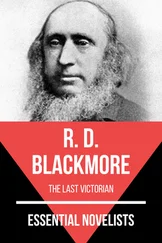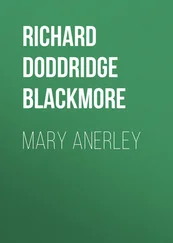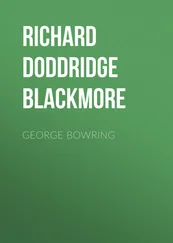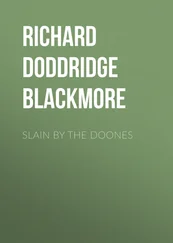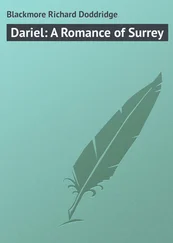R. D. Blackmore
Lorna Doone, A Romance of Exmoor
✓ VISIT OUR WEBSITE:
LyFreedom.com
This work is called a 'romance,' because the incidents, characters, time, and scenery, are alike romantic. And in shaping this old tale, the Writer neither dares, nor desires, to claim for it the dignity or cumber it with the difficulty of an historic novel.
And yet he thinks that the outlines are filled in more carefully, and the situations (however simple) more warmly coloured and quickened, than a reader would expect to find in what is called a 'legend.'
And he knows that any son of Exmoor, chancing on this volume, cannot fail to bring to mind the nurse-tales of his childhood—the savage deeds of the outlaw Doones in the depth of Bagworthy Forest, the beauty of the hapless maid brought up in the midst of them, the plain John Ridd's Herculean power, and (memory's too congenial food) the exploits of Tom Faggus.
March, 1869.

Chapter 1. Elements Of Education
If anybody cares to read a simple tale told simply, I, John Ridd, of the parish of Oare, in the county of Somerset, yeoman and churchwarden, have seen and had a share in some doings of this neighborhood, which I will try to set down in order, God sparing my life and memory. And they who light upon this book should bear in mind not only that I write for the clearing of our parish from ill fame and calumny, but also a thing which will, I trow, appear too often in it, to wit—that I am nothing more than a plain unlettered man, not read in foreign languages, as a gentleman might be, nor gifted with long words (even in mine own tongue), save what I may have won from the Bible or Master William Shakespeare, whom, in the face of common opinion, I do value highly. In short, I am an ignoramus, but pretty well for a yeoman.
My father being of good substance, at least as we reckon in Exmoor, and seized in his own right, from many generations, of one, and that the best and largest, of the three farms into which our parish is divided (or rather the cultured part thereof), he John Ridd, the elder, churchwarden, and overseer, being a great admirer of learning, and well able to write his name, sent me his only son to be schooled at Tiverton, in the county of Devon. For the chief boast of that ancient town (next to its woollen staple) is a worthy grammar-school, the largest in the west of England, founded and handsomely endowed in the year 1604 by Master Peter Blundell, of that same place, clothier.
Here, by the time I was twelve years old, I had risen into the upper school, and could make bold with Eutropius and Caesar—by aid of an English version—and as much as six lines of Ovid. Some even said that I might, before manhood, rise almost to the third form, being of a perservering nature; albeit, by full consent of all (except my mother), thick-headed. But that would have been, as I now perceive, an ambition beyond a farmer's son; for there is but one form above it, and that made of masterful scholars, entitled rightly 'monitors'. So it came to pass, by the grace of God, that I was called away from learning, whilst sitting at the desk of the junior first in the upper school, and beginning the Greek verb [Greek word].
My eldest grandson makes bold to say that I never could have learned [Greek word], ten pages further on, being all he himself could manage, with plenty of stripes to help him. I know that he hath more head than I—though never will he have such body; and am thankful to have stopped betimes, with a meek and wholesome head-piece.
But if you doubt of my having been there, because now I know so little, go and see my name, 'John Ridd,' graven on that very form. Forsooth, from the time I was strong enough to open a knife and to spell my name, I began to grave it in the oak, first of the block whereon I sate, and then of the desk in front of it, according as I was promoted from one to other of them: and there my grandson reads it now, at this present time of writing, and hath fought a boy for scoffing at it—'John Ridd his name'—and done again in 'winkeys,' a mischievous but cheerful device, in which we took great pleasure.
This is the manner of a 'winkey,' which I here set down, lest child of mine, or grandchild, dare to make one on my premises; if he does, I shall know the mark at once, and score it well upon him. The scholar obtains, by prayer or price, a handful of saltpetre, and then with the knife wherewith he should rather be trying to mend his pens, what does he do but scoop a hole where the desk is some three inches thick. This hole should be left with the middle exalted, and the circumfere dug more deeply. Then let him fill it with saltpetre, all save a little space in the midst, where the boss of the wood is. Upon that boss (and it will be the better if a splinter of timber rise upward) he sticks the end of his candle of tallow, or 'rat's tail,' as we called it, kindled and burning smoothly. Anon, as he reads by that light his lesson, lifting his eyes now and then it may be, the fire of candle lays hold of the petre with a spluttering noise and a leaping. Then should the pupil seize his pen, and, regardless of the nib, stir bravely, and he will see a glow as of burning mountains, and a rich smoke, and sparks going merrily; nor will it cease, if he stir wisely, and there be a good store of petre, until the wood is devoured through, like the sinking of a well-shaft. Now well may it go with the head of a boy intent upon his primer, who betides to sit thereunder! But, above all things, have good care to exercise this art before the master strides up to his desk, in the early gray of the morning.
Other customs, no less worthy, abide in the school of Blundell, such as the singeing of nightcaps; but though they have a pleasant savour, and refreshing to think of, I may not stop to note them, unless it be that goodly one at the incoming of a flood. The school-house stands beside a stream, not very large, called Lowman, which flows into the broad river of Exe, about a mile below. This Lowman stream, although it be not fond of brawl and violence (in the manner of our Lynn), yet is wont to flood into a mighty head of waters when the storms of rain provoke it; and most of all when its little co-mate, called the Taunton Brook—where I have plucked the very best cresses that ever man put salt on—comes foaming down like a great roan horse, and rears at the leap of the hedgerows. Then are the gray stone walls of Blundell on every side encompassed, the vale is spread over with looping waters, and it is a hard thing for the day-boys to get home to their suppers.
And in that time, old Cop, the porter (so called because he hath copper boots to keep the wet from his stomach, and a nose of copper also, in right of other waters), his place is to stand at the gate, attending to the flood-boards grooved into one another, and so to watch the torrents rise, and not be washed away, if it please God he may help it. But long ere the flood hath attained this height, and while it is only waxing, certain boys of deputy will watch at the stoop of the drain-holes, and be apt to look outside the walls when Cop is taking a cordial. And in the very front of the gate, just without the archway, where the ground is paved most handsomely, you may see in copy-letters done a great P.B. of white pebbles. Now, it is the custom and the law that when the invading waters, either fluxing along the wall from below the road-bridge, or pouring sharply across the meadows from a cut called Owen's Ditch—and I myself have seen it come both ways—upon the very instant when the waxing element lips though it be but a single pebble of the founder's letters, it is in the license of any boy, soever small and undoctrined, to rush into the great school-rooms, where a score of masters sit heavily, and scream at the top of his voice, 'P.B.'
Читать дальше


